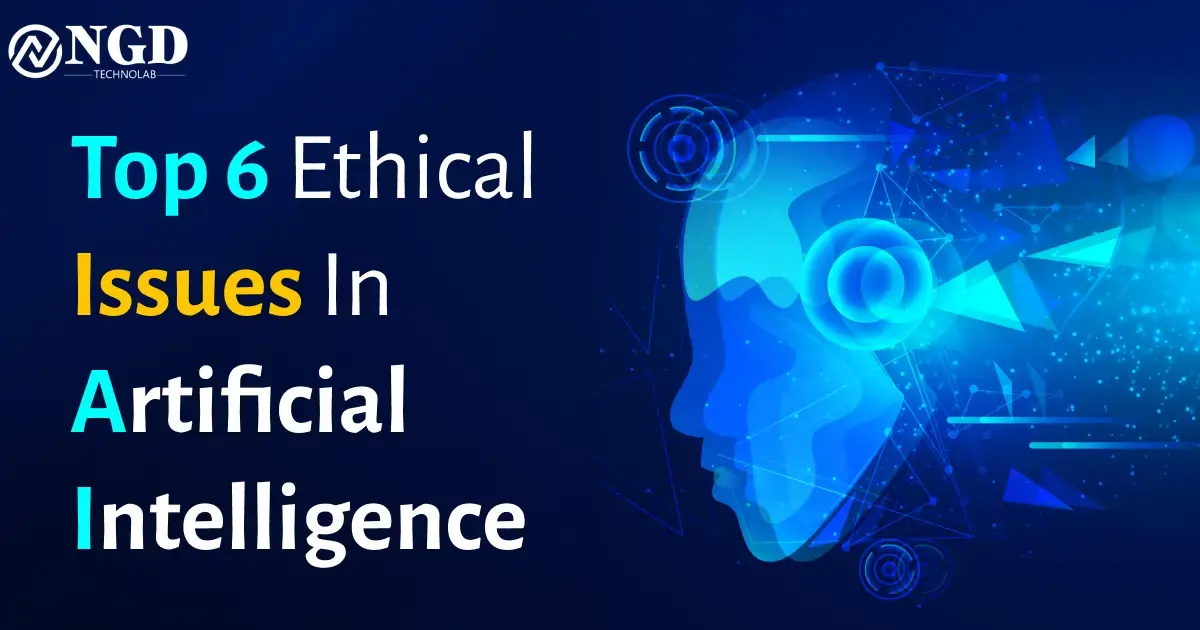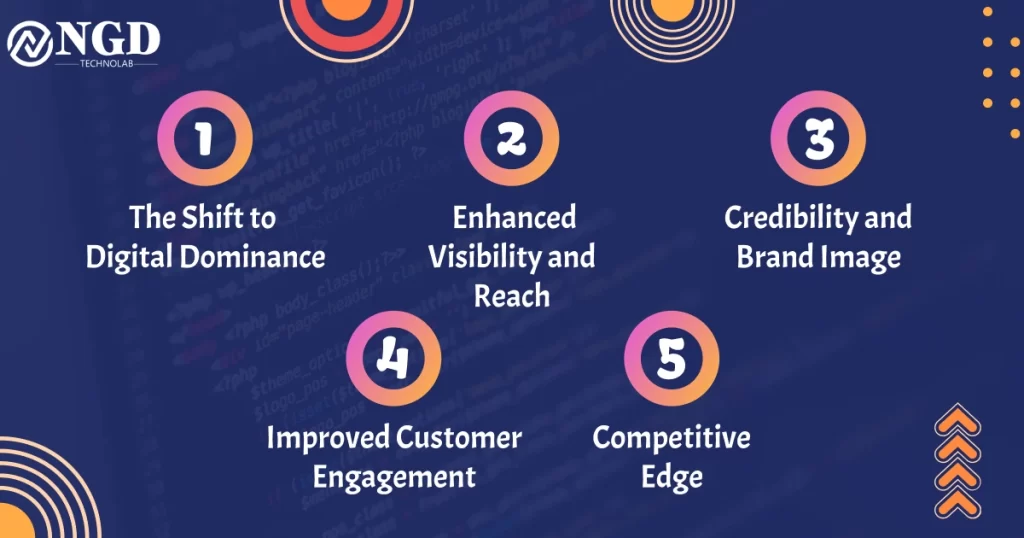Top 6 Ethical Issues In Artificial Intelligence
-
Harshid Patel

In the rapidly advancing realm of artificial intelligence, ethical considerations play a pivotal role in shaping the trajectory of its development. Exploring the multifaceted landscape of AI ethical issues is crucial for fostering responsible innovation. This comprehensive 5000-word guide delves into the top six ethical challenges surrounding artificial intelligence, shedding light on the nuanced aspects that demand our attention and scrutiny.
Understanding AI Ethical Issues
Artificial intelligence has brought about incredible progress, but it also brings up important ethical questions. In this part, we’ll look at the various ethical concerns related to AI, laying the groundwork for a closer look.
Transparency and Accountability
One of the primary ethical concerns in AI development revolves around transparency and accountability. Navigating through the intricate web of responsible AI implementation demands careful examination of transparency mechanisms and establishing clear lines of accountability.
Bias and Fairness in AI
As AI algorithms become integral to decision-making processes, the issue of bias and fairness takes center stage. Unraveling the complexities of bias in AI systems and devising strategies for ensuring fairness is imperative for ethical AI integration.
Privacy Concerns
AI’s capability to process vast amounts of data raises pertinent questions about user privacy. This section delves into the ethical dimensions of AI-driven data collection and processing, emphasizing the need for robust privacy safeguards.
Security and Autonomous Systems
The rise of autonomous AI systems brings forth concerns related to security and potential risks. Analyzing the ethical implications of autonomous AI and establishing protocols for ensuring system security are crucial for responsible AI deployment.
Social Impact of AI
AI’s societal impact is profound, influencing various aspects of human life. Evaluating the ethical ramifications of AI on employment, societal structures, and human relationships provides valuable insights into shaping an AI-driven future responsibly.
Future Perspectives
Anticipating the future trajectory of AI ethical considerations is essential for proactive decision-making. This section explores emerging ethical challenges and potential strategies to address them, fostering a forward-looking perspective.
Conclusion
In conclusion, navigating the ethical landscape of artificial intelligence requires a nuanced understanding of the multifaceted challenges it presents. By addressing transparency, bias, privacy, security, social impact, and future perspectives, we pave the way for ethical AI innovation that aligns with societal values.
Frequently Asked Questions
Ethical concerns in AI encompass transparency, bias, privacy, security, social impact, and future considerations.
Mitigating AI bias involves implementing fairness measures, diverse dataset curation, and continuous monitoring.
Transparency ensures accountability and helps build trust by providing insights into AI decision-making processes.
AI poses challenges related to data privacy, emphasizing the need for robust safeguards and ethical data handling practices.
AI influences employment, societal structures, and human relationships, necessitating ethical considerations for responsible integration.
Get Free consultation and let us know about your custom web and Mobile App project idea

Over 14+ years of work experience, we have built 210+ web and mobile apps
We can help you with
- Dedicated Developer
- delivering high-quality development
- Custom Mobile App Development
- Innovative Solution For Startups and Enterprise
Get Free consultation and let us know about your custom web and Mobile App project idea

Over 10 years of work experience, we have built 210+ web and mobile apps
We can help you with
- Dedicated Developer
- delivering high-quality development
- Custom Mobile App Development
- Innovative Solution For Startups and Enterprise
Latest Blogs
Explore the Latest Blogs on Trends and Technology.





